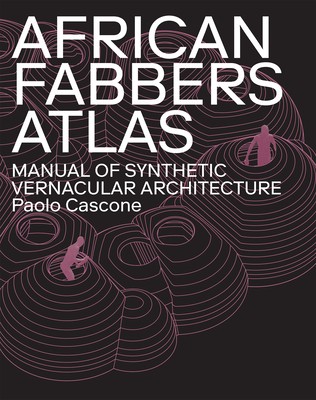
- We will send in 10–14 business days.
- Author: Paolo Cascone
- Publisher: ACTAR
- ISBN-10: 1948765624
- ISBN-13: 9781948765626
- Format: 16.8 x 21.1 x 2 cm, minkšti viršeliai
- Language: English
- SAVE -10% with code: EXTRA
Reviews
Description
A compendium of essays, conversations and paradigmatic projects conceived as an adaptive platform on synthetic-vernacular architecture in Africa and its potential role as cultural driver for global scenarios. Based on almost ten years of applied research of Paolo Cascone and his CODESIGNLAB practice in Africa, the book investigates the potential role of indigenous and spontaneous architecture in the contemporary debate on sustainability in architectural design. How to respond to climatic changes reconciling nature with tekné? What is the social role of technology? How architects would reconsider their practices supporting community-oriented projects? These questions are discussed through a number of paradigmatic projects and conversations between the author and a panel of experts from different backgrounds in order to shape an interdisciplinary approach that bridges different knowledges. The theoretical assumption for this investigation is based on the observation of cause-effect relations, between different urban and architectural configurations and their performances: social, environmental, structural etc. in both pre-colonial and informal cultures around Africa. The diachronic approach intends to generate, after many years of post-colonial studies, an operative agenda of possible strategies, which is in accordance with different contextual conditions starting from the anthropological and the climatic ones. Such an agenda responds to a global cultural need for an ecological shift in the contemporary design and manufacturing processes, which should bridge high and low-tech cultures. Therefore, the book is conceived also as a sort of manual that is articulated around emergent principles inspired by traditional and informal African practices and architectures: self-similarity and diversified typologies, material optimisation and circular economy, self-sufficiency and responsive dwellings. Each principle is confronted also with the work of pioneers such as Hassan Fathy, Fabrizio Carola etc. with the aim of sharing and evolving such tremendous heritage by introducing the case studies realized in the frame of the [AF] African Fabbers project over the last decade. The [AF] project has been developed in the last decade as a research platform and an itinerant school for training programmes and community-oriented initiatives that bridges digital and traditional manufacturing for sustainable living. This approach responds to the lack of schools of architecture in the region, despite the economic growth of these countries and their need for social housing and basic infrastructures. For this reason, the book aims at declining such on-site experience and its theoretical background into a decolonised approach to architectural education. This drives to the conclusion that we should probably start to take into serious consideration African solutions for global problems.With Contributions of David Adjaye - David Adjaye Architects - London/NYC/Accra Chirstian Benimana /MASS - Architect - Boston/Kigali Cheick Diallo - Designer - Bamako/Mali Ron Eglash - Professor of ethnomathematics -University of Michigan Mariam Kamara - Architect Atelier Masomi-Niamey Niger Ugo La Pietra - designer - Milan Massimo Moretti - founder of WASP - Italy AbdouMaliq Simone - Professor of sociology - University of Sheffield Paul Assako - Professor of history of contemporary arts -University of Yaoundé /CameroonEXTRA 10 % discount with code: EXTRA
The promotion ends in 21d.18:31:07
The discount code is valid when purchasing from 10 €. Discounts do not stack.
- Author: Paolo Cascone
- Publisher: ACTAR
- ISBN-10: 1948765624
- ISBN-13: 9781948765626
- Format: 16.8 x 21.1 x 2 cm, minkšti viršeliai
- Language: English English


Reviews